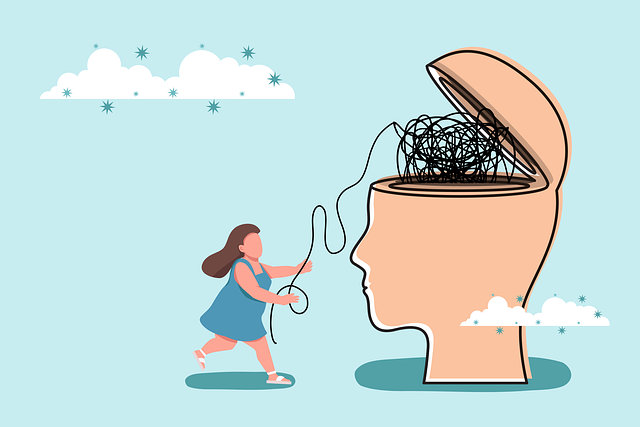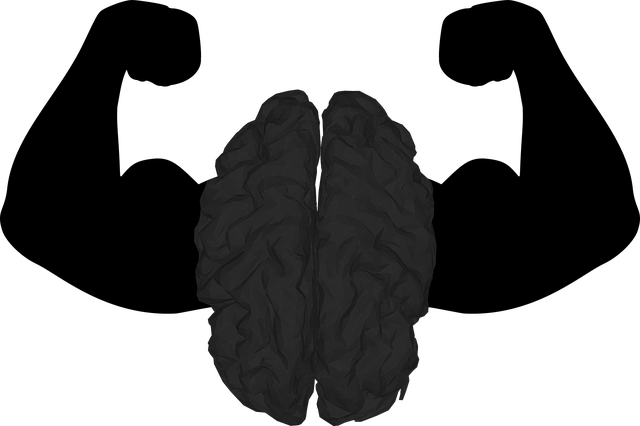Greenwood Village Eating Disorders Therapy leverages mindfulness meditation as a modern healing tool, integrating it into recovery strategies like Self-Awareness Exercises and Empathy Building Strategies. Creating a dedicated mindfulness space at home, practicing mindful breathing and body scans, and incorporating mindfulness into daily activities like meals can foster inner peace and challenge distorted eating patterns. This holistic approach, highlighted in mental health awareness campaigns, destigmatizes eating disorders and promotes accessible, sustainable healing through mindfulness practices.
Discover the transformative power of mindfulness meditation for eating disorders recovery in Greenwood Village. This comprehensive guide explores how cultivating present-moment awareness can support healing and balance. From understanding the basics of mindfulness meditation to setting up a calming practice space, you’ll learn techniques and strategies to integrate mindfulness into your daily life. Embrace these insights for lasting well-being and explore the benefits that Greenwood Village Eating Disorders Therapy offers.
- Understanding Mindfulness Meditation for Eating Disorders Recovery
- Setting Up Your Space: Creating a Calming Environment for Practice
- Techniques and Exercises to Cultivate Mindfulness
- Integrating Mindfulness into Daily Life: Strategies for Sustained Healing
Understanding Mindfulness Meditation for Eating Disorders Recovery

Mindfulness meditation has emerged as a powerful tool in the journey towards recovery from eating disorders. In the context of Greenwood Village Eating Disorders Therapy, this ancient practice offers a modern approach to healing. It involves cultivating present-moment awareness and non-judgmental observation of thoughts and sensations, including those related to food and body image. By focusing on the sensory experience of each bite, individuals can develop a deeper connection with their bodies, fostering self-awareness exercises that challenge distorted eating patterns.
Incorporating mindfulness into recovery strategies, such as Self-Awareness Exercises and Empathy Building Strategies, empowers individuals to navigate emotional triggers differently. Unlike traditional therapy sessions, mindfulness meditation encourages patients to become active participants in their healing process. This practice promotes a sense of calm and control, which is especially beneficial during challenging moments or cravings. Public Awareness Campaigns Development can also benefit from highlighting the role of mindfulness, as it contributes to destigmatization and educates folks on the holistic approaches available for eating disorders recovery.
Setting Up Your Space: Creating a Calming Environment for Practice

Creating a dedicated space for mindfulness meditation is the first step towards cultivating inner peace and well-being. Imagine your practice as a sanctuary—a personal retreat where you can escape the chaos of daily life. In your calming environment, whether it’s a quiet corner of your bedroom or a cozy nook in your home, ensure comfort and minimal distractions. Soft lighting, a few potted plants, and soothing decor can transform this space into an oasis for mindfulness.
At Greenwood Village Eating Disorders Therapy, we emphasize the importance of setting up such a haven, especially when managing stress, fostering inner strength, or seeking crisis intervention guidance. By creating a tranquil atmosphere, you signal to your mind that it’s time to relax and focus. This ritual of preparing your space prepares you mentally for the practice, allowing for deeper connection and introspection during meditation sessions.
Techniques and Exercises to Cultivate Mindfulness

Cultivating mindfulness involves a range of techniques and exercises designed to help individuals become more aware of their thoughts, feelings, and bodily sensations in the present moment. One effective practice is mindful breathing, where one focuses on inhales and exhales, observing the rhythm of breath without judgment. This simple exercise helps to calm the mind and reduce stress.
Another valuable technique is body scans, which involve systematically attending to different parts of the body, noting sensations as they arise. This practice enhances self-awareness and can aid in identifying physical tension or discomfort. Integrating mindfulness into daily routines, such as during meals through mindful eating or during walks, further reinforces its benefits. For those seeking additional support, self-care routine development for better mental health and mental wellness podcast series production can offer engaging and accessible ways to explore and deepen mindfulness practices.
Integrating Mindfulness into Daily Life: Strategies for Sustained Healing

Integrating mindfulness into daily life is a powerful strategy for sustained healing and improved mental health, as championed by Greenwood Village Eating Disorders Therapy. Beyond isolated meditation sessions, mindfulness involves cultivating present-moment awareness in all aspects of life. This could mean paying close attention to your sensory experiences during meals, appreciating the beauty around you, or practicing active listening during conversations. Such practices not only enhance overall well-being but also foster a deeper sense of connection with oneself and one’s surroundings.
For sustained results, individuals should consider incorporating mindfulness into their routines in small, manageable ways. This might include setting aside dedicated time each day for mindful activities like meditation or nature walks. Moreover, engaging in mental health awareness campaigns and promoting cultural sensitivity in mental healthcare practice can create a supportive environment that encourages the integration of mindfulness into everyday life. Public Awareness Campaigns Development plays a crucial role in normalizing these practices, thereby reducing stigma and increasing accessibility to mental health resources.
Mindfulness meditation offers a powerful tool in the journey towards recovery from eating disorders, as evidenced by its effectiveness at Greenwood Village Eating Disorders Therapy. By understanding and practicing mindfulness, individuals can cultivate a healthier relationship with food and their body, leading to sustained healing. Integrating these techniques into daily life creates a sense of calm and awareness, enabling individuals to make conscious choices that support their well-being. With dedicated practice, mindfulness meditation can truly transform lives, fostering a deeper connection with oneself and promoting long-term recovery.














